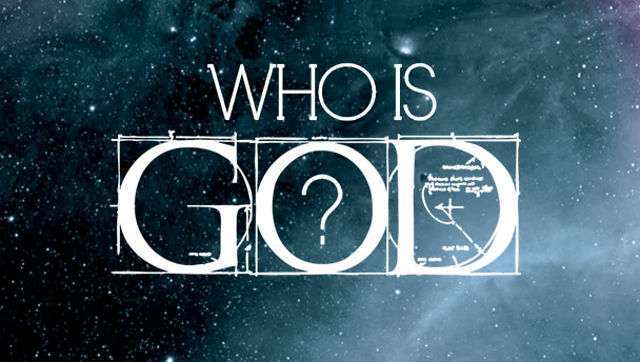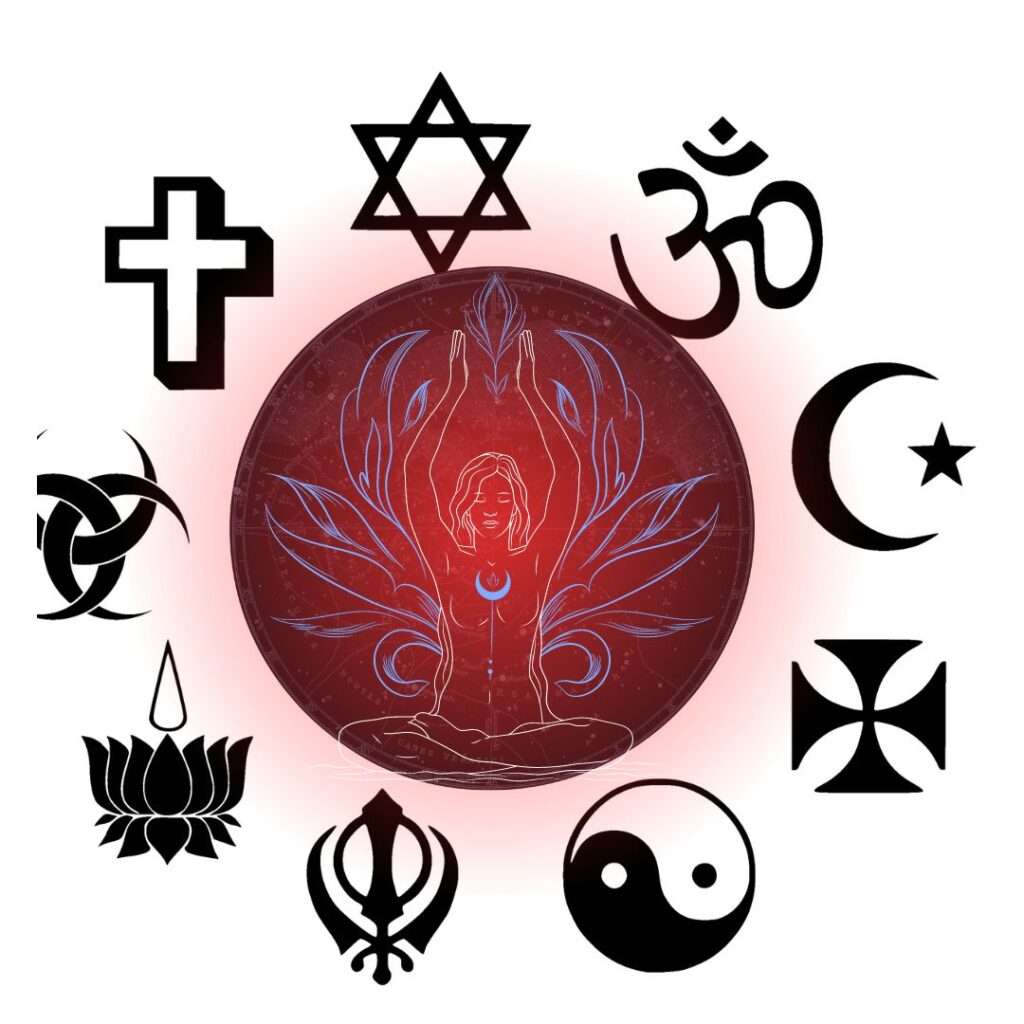
Unveiling the Enigma: Full Moon & the Resplendent Pink Moon April 2024 – What Secrets Do They Hold?
Full Moon-Pink Moon in April 2024 No, the full moon in April is not going to look pink, despite its namesake. Discover
One aspect of God is the energy that is in all things living and seeemingly not and the space in between. It is the atoms spinning so fast that our world seems solid matter. Your hand, your car, the trees. All are God. In fact our planet is a living organism. God is the intelligence that powers us and the many dimensions on earth and far, far beyond, and way, way tinier than can be seen. All is God. This is what we experience here but the true reality is the unseen spiritual worlds. At the literal center of eveything is love. You were created from love and you are love as is God. There is no good and bad but just is. The Creator does not judge so feel no guilt. It wants us to create the worlds we choose. But remember there are consequences to our choices. Judgement is a popular human vice we do constantly. But we can not appreciate sunny days without the stormy ones. We can’t choose to be good if there is not also a choice of being bad. So do not curse the bad days for you can know good days are coming. This is the Theory of Relativity. Come with us as we explore a new understanding of what God and life is all about.

Love is the opposite of fear and is a multifaceted emotion, encompassing care, compassion, and connection and an appreciation for someone or something. It’s an enduring bond that transcends boundaries, nurturing understanding, empathy, and selflessness. Love motivates acts of kindness, sacrifice, and forgiveness, enriching both giver and receiver.
Universal love is unconditional love for all there is in life including romantic love. Idealy selfless universal love should come before all other forms and actions related to love. It is wishing for only the best for the subject of one’s love. Jealousy, greed and envy are not involved. Universal love is a profound appreciation for all of life enriching life’s experiences with joy, meaning, and fulfillment.

Freedom of religion grants individuals the right to practice, worship, or abstain from any faith without coercion or discrimination. It ensures autonomy in beliefs, rituals, and expressions, fostering diverse spiritual journeys and promoting harmony in society. That is the ideal. However we are still subject to pressure from society and our peers. Thank God for free will.
Deepak Chopra said that religion is when someone else tells you what God is and spirituality is when you find God all by yourself. Spirituality encompasses individual beliefs, experiences, and connections with the divine or transcendent. It’s deeply personal, focusing on inner growth, meaning, and purpose, often outside traditional religious frameworks. Religion, on the other hand, typically involves organized beliefs, rituals, and institutions, often with shared doctrines and practices within a community. Religion is often the first step toward understanding God.

Spiritual awakening is a profound shift in consciousness, leading to heightened awareness, inner transformation, and a deeper connection with the divine or one’s true self. It often involves enlightenment, inner peace, and a sense of purpose beyond the material world. It can include the realzation and acceptance that we are responsible for our own worlds and we create our world by how we think and feel about life.
Scientists are looking more deeply into the idea that consciousness lives outside of our brains and may continue after our bodies die. Scientists with decades of experience in recetatative practices and in near death experiences are studying more deeply and expect to have more proof in the future. But we always knew this when we use a term like, “Their body is there.”
Spirituality is something that the Church can not control, and members of the church often repeat the old lines that the church used for centuries – that if we consider something outside of their narrative we will all go to hell. And our parents out of love taught us. Jesus never said that. God made us conscious to think for ourselves. Questioning authority is exactly what Jesus did. Follow Him.

Happiness is for most a choice. It is a choice beause most of us, unless in special cases, can control our emotions and can choose between happiness and love and fear and dread. I have seen people without limbs be happy and people with everyhing be miserable. It is in how we look at life. Is it a gift or a curse? Do you wake up each day glad to be alive or wish you were dead? Do you appreciate it or complain about it most of the time?
First we have to live in this moment right now and forget about the past and the future. Don’t worry about other times. We have to judge not good not bad. Now we get to think or grab something you love or even a photo. Study that love object closely. Touch it and feel it and thefeelings that thing evokes. Smile as you rthink of it. Really get into whatever that thing is whether a car, a chocolate cake, a person or a pet. Are you smiling? That is love and that is happiness.
What if we create our own worlds by what we conjure up in our minds? And we are virtual creating machines. We bring into our reality what we love and what we fear. It is a flexible system that adapts to our desires. And our fears. It will not give up if we have blocks of fear or not feeling worthy or of doubt. And although manifestation can seem impossible for many, it is not for those who understand how to play the game. And we have been playing the game since we first took a breath. So create and be happy in it.




Full Moon-Pink Moon in April 2024 No, the full moon in April is not going to look pink, despite its namesake. Discover

Monday Motivational Quotes: Introduction: Mondays symbolize new beginnings, offering a fresh canvas for us to paint our aspirations and dreams. Yet, navigating

Wednesday Inspirational Quotes, In our fast-paced and often stressful lives, finding inspiration can be a challenge. However, it is crucial to our

Be positive, Positivity is a powerful force that can greatly impact our lives. It is the ability to maintain an optimistic outlook,
This describes the feeling of love and how to bring it into anyone’s life weather they wonder if they have ever felt the real thing before or they have and want to bring it back but for all the ingredients of life. Includes examples designed to help readers actually feel what love for life feels like and how to reproduce that feeling at will.
by James Chilson
Hi, I’m Lizzie – an angel intuitive! I’ve been connected to angels ever since I was a little girl, and it makes me so happy to be able to share messages from the angelic realm with others to help guide them on their highest timeline. I’m also an energy healer and coach, and work with the Archangels / Ascended Masters to help heal those I work with and remove blockages. Lastly, I’m a YouTuber and host of the Illuminate With Lizzie podcast. My intention with my channel is to help others navigate their spiritual journeys, have conscious conversations that ignite awakening, and help bring illumination to those who seek it.
JOIN LIVE Zoom
Hale Ho’onani, House of Praise in Hawaiian, is a new kind of interactive church with a diverse congregation of non-traditional Christians and non-Christians.
We recognize the divine spark of God within dreaming to fulfill your life’s purpose, the Dream of Your Soul. Our interactive service draws from many faiths, ethnicities, cultures and nature to help you discover the meaning of your life.
Profound meditations and prayers welcome God, Christ, angels, ancestors and spirit guides derived from the traditions of Hawaiian culture and history.
https://us02web.zoom.us/j/89934043496
To join the zoom service on the 1st Sunday of the month use this link.